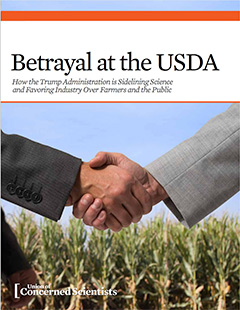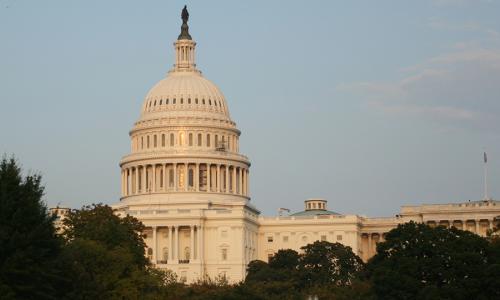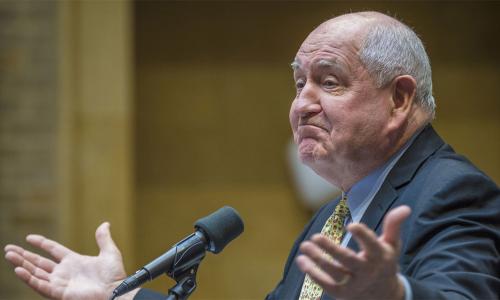From farm to fork, the people of the United States deserve a food system they can be proud of—one that ensures the success of farmers while protecting our soil and water and helping to make safe and healthy food available to everyone. The US Department of Agriculture (USDA) should play a key role in this system, using science-based policies to advance innovative, sustainable farming practices and increase access to affordable, healthy food for all.
Instead, in its first year, the Trump administration's USDA has sidelined science, undermined key public health and safety protections, and prioritized the interests of large agribusiness companies over the public interest. In doing so, the administration has betrayed farmers, consumers, and rural communities. That's the finding of Betrayal at the USDA, a report examining the agency's policy and personnel decisions under Secretary of Agriculture Sonny Perdue.
Why the USDA matters
Many Americans might be surprised to discover how large an impact the USDA has on their everyday lives. The agency's programs and policies help shape farmers' decisions about what to grow and how to grow it; the cost, availability, and safety of the food we all eat; the quality of the nation's soil and water resources; and the social and economic well-being of our communities—especially rural communities.
The USDA is also important for science: the agency invests billions of dollars each year in research on agricultural and food research, and has a stated commitment to scientific integrity and evidence-based decisionmaking in the public interest.

A troubling track record, and a damaging first year
As governor of Georgia from 2003 to 2011, Sonny Perdue showed some troubling traits: a penchant for ethics violations and self-dealing (for instance, signing a law that gave him a retroactive $100,000 tax break on an earlier land deal); a tendency toward cronyism and “revolving door” staffing decisions; and a willingness to put the public at risk by weakening science-based protections.
If Governor Perdue’s record gave rise to concerns about how he would run the USDA, Secretary Perdue’s first year in office has shown those concerns to be well-founded. He has backed unqualified candidates for senior positions, undermined science-based health and safety protections, and prioritized the needs of agribusiness over the needs of farmers and consumers.
Conflicted, unqualified appointees
As he did in Georgia, Perdue has made liberal use of the revolving door to fill USDA leadership posts, appointing former business associates, agribusiness executives and lobbyists to senior-level agency positions.
Betrayal at the USDA offers several examples of such questionable appointments. In one, Kailee Tkacz, a former lobbyist for the Corn Refiners Association and Snack Food Association, was appointed to advise the USDA on federal dietary guidelines—a job for which she needed (and got) a White House waiver to sidestep ethics rules. Tkacz has no training in science, public health, or nutrition.
Perdue has also supported the appointment of people clearly unqualified for the job—like Sam Clovis, a talk radio host and Trump campaign national co-chair who was nominated for the USDA's undersecretary for research, education, and economics, despite having none of the scientific training or experience that the law requires for this position. While his past embrace of conspiracy theories, racist and otherwise offensive statements, and revelations that Clovis was involved in Trump campaign contacts with Russia eventually proved too much for his nomination, he has remained in the USDA as a senior advisor.
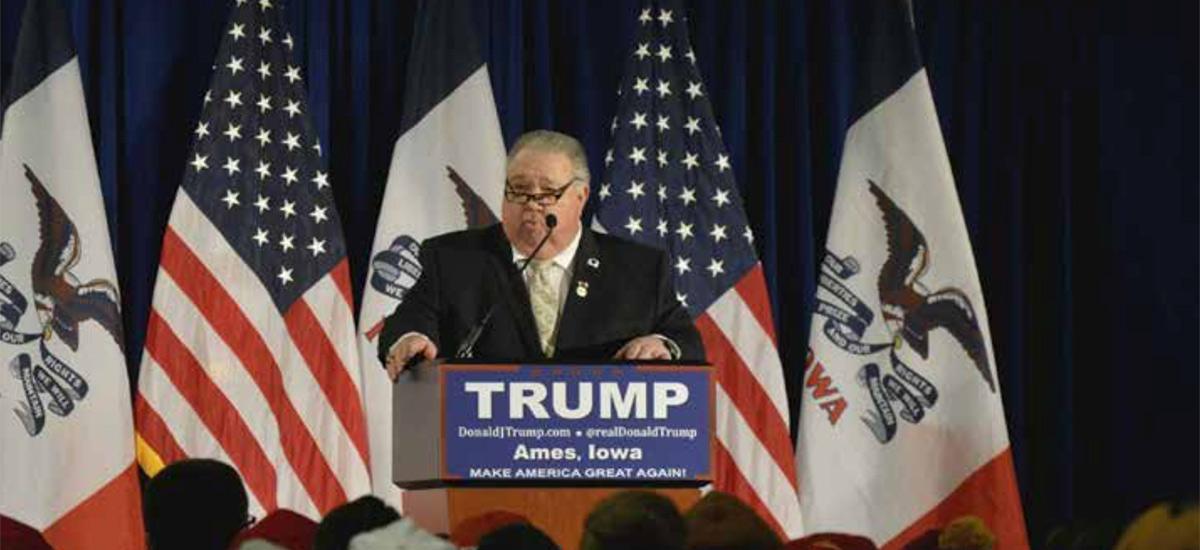
Undermining science-based standards
The USDA is responsible for applying science to ensure the US food system serves the public interest. This mission includes setting standards to maintain food safety, protect food system workers from job-related illness and injury, improve child nutrition, and alleviate hunger. In each of these areas, Secretary Perdue has initiated policy decisions that appear to override evidence and disregard the public interest in favor of agribusiness:
- Antibiotics in agriculture. Overuse of antibiotics in meat and poultry production is a serious public health threat. Last year the World Health Organization (WHO) issued new guidelines aimed at addressing this threat by discontinuing use of antibiotics in healthy animals. The USDA's acting chief scientist responded with an unfounded attack on the quality of the evidence WHO used as the basis for its recommendation.
- Rollback of school meal rules. School meals and snacks, which provide more than half of the day's calories for a typical American child, are a critical opportunity to ensure that children are meeting their nutritional needs and forming good food habits that can help them avoid obesity and chronic disease as adults. The Healthy, Hunger-Free Kids Act of 2010 (HHFKA) was an important step toward achieving this goal, as multiple studies have shown. The Perdue USDA has weakened HHFKA by loosening standards on whole grains, sodium, and sugar-sweetened milk.
- Pesticide regulations. The Trump USDA played a key role in one of the most egregious actions of the EPA under Administrator Scott Pruitt—the March 2017 decision to reverse an Obama-era rule banning the nerve-damaging pesticide chlorpyrifos. Documents obtained by the New York Times show that the USDA joined agribusiness lobbyists in arguing against the ban in the weeks before Pruitt's decision.
- Food stamp proposals. Perdue said all the right things about the SNAP program during his confirmation hearings. Since he took office, however, he and his agency have made a series of public statements and policy proposals—including the notoriously ill-conceived "Harvest Box" idea—that seem rooted in misconceptions about SNAP and designed to punish and stigmatize participants.

Reorganizing USDA to prioritize agribusiness interests
In May 2017, Perdue announced plans for a major reorganization of the USDA. The details of these plans—which include establishing a new Undersecretary for Trade and Foreign Agricultural Affairs (TFAA), while eliminating the agency's rural development mission area and its undersecretary—do not bode well for rural development, conservation, nutrition, and other essential programs.
-
Removing protections for small farmers. By eliminating the Grain Inspection, Packers, and Stockyards Administration (GIPSA), and rolling back two of its rules, the Perdue USDA has made it harder for small poultry and livestock farmers to stand up against exploitation by the large meat processing companies they have contracts with. This decision (which is now the target of a federal lawsuit) has been widely decried as an abandonment of small farmers.
-
Blurring lines on scientific integrity. Two pieces of the reorganization—moving the little-known US Codex Office from the Office of Food Safety to the TFAA, and merging two of the department's key nutrition agencies—might seem like meaningless bureaucratic reshuffling. In fact, these moves risk compromising scientific integrity (or the perception of it) with regard to federal food safety and nutrition science.
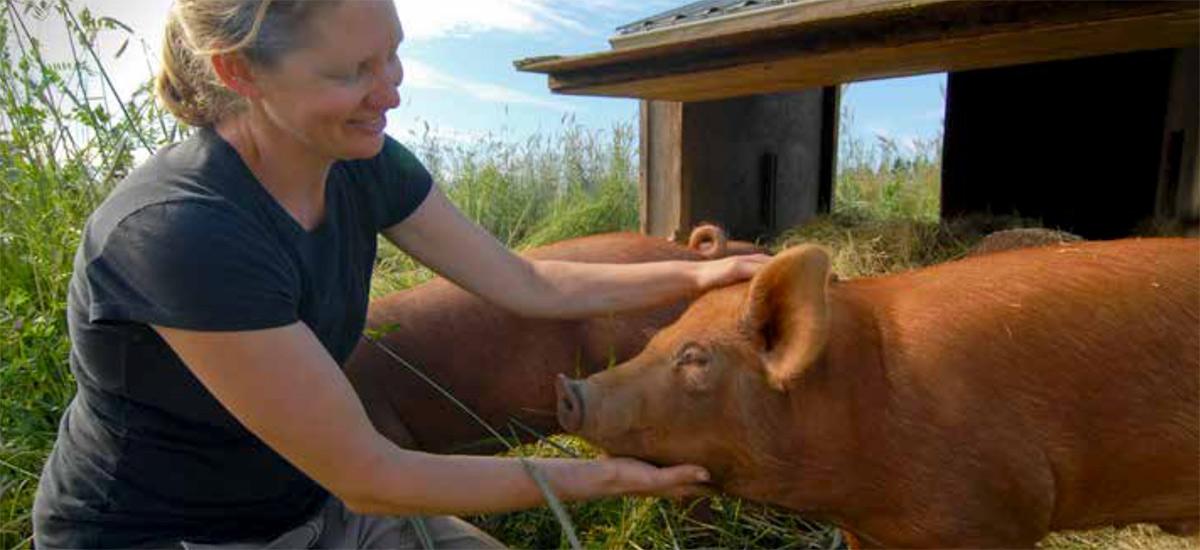
Failing to push for farmer-friendly policies
In several areas, Secretary Perdue has been a cheerleader for policies that would likely hurt farmers, or failed to stand up for farmer-friendly alternatives.
For instance, he has supported Trump’s 2019 budget proposal, which would cut USDA funding by a whopping 25 percent—including deep cuts to programs that use science to help farmers and rural communities, such as the Economic Research Service (ERS) and Sustainable Agriculture Research and Education program (SARE).
Perdue has also been a strong advocate for the Trump tax plan, despite analysis by USDA economists showing that its provisions will mostly help the top 1 percent of farmers and will likely decrease agricultural productivity.
Recommendations
In sidelining science and prioritizing agribusiness interests over the public good, Trump’s USDA is following a pattern that has become familiar to administration observers. Many of the general recommendations in our 2017 report on the Trump administration, Sidelining Science Since Day One, apply here. In addition, the report offers some specific recommendations:
- Increased oversight. Congress, particularly its agriculture committees, should investigate ethics issues, scrutinize the department's reorganization decisions, and ensure that USDA is fulfilling its mandate to support farmers and consumers.
- A qualified chief scientist. The Senate should make clear that it will not confirm a USDA undersecretary for research, economics, and education who does not have the scientific or economic training or experience required by law.
- Science-based dietary guidelines. As the USDA begins work on the next update of the federal dietary recommendations, Secretary Perdue should ensure that the department seeks, receives, and implements sound and independent scientific advice.
- Fully-funded research operations. Congressional appropriators should disregard proposals from the White House and Secretary Perdue that call for deep cuts in research and education programs that are important to consumers, farmers, and rural communities.
- SNAP policies based on evidence, not ideology. Using its oversight authority and its legislative role in reauthorizing the farm bill, Congress should guard against ill-conceived, ideological cuts and eligibility changes to this important social safety net.
